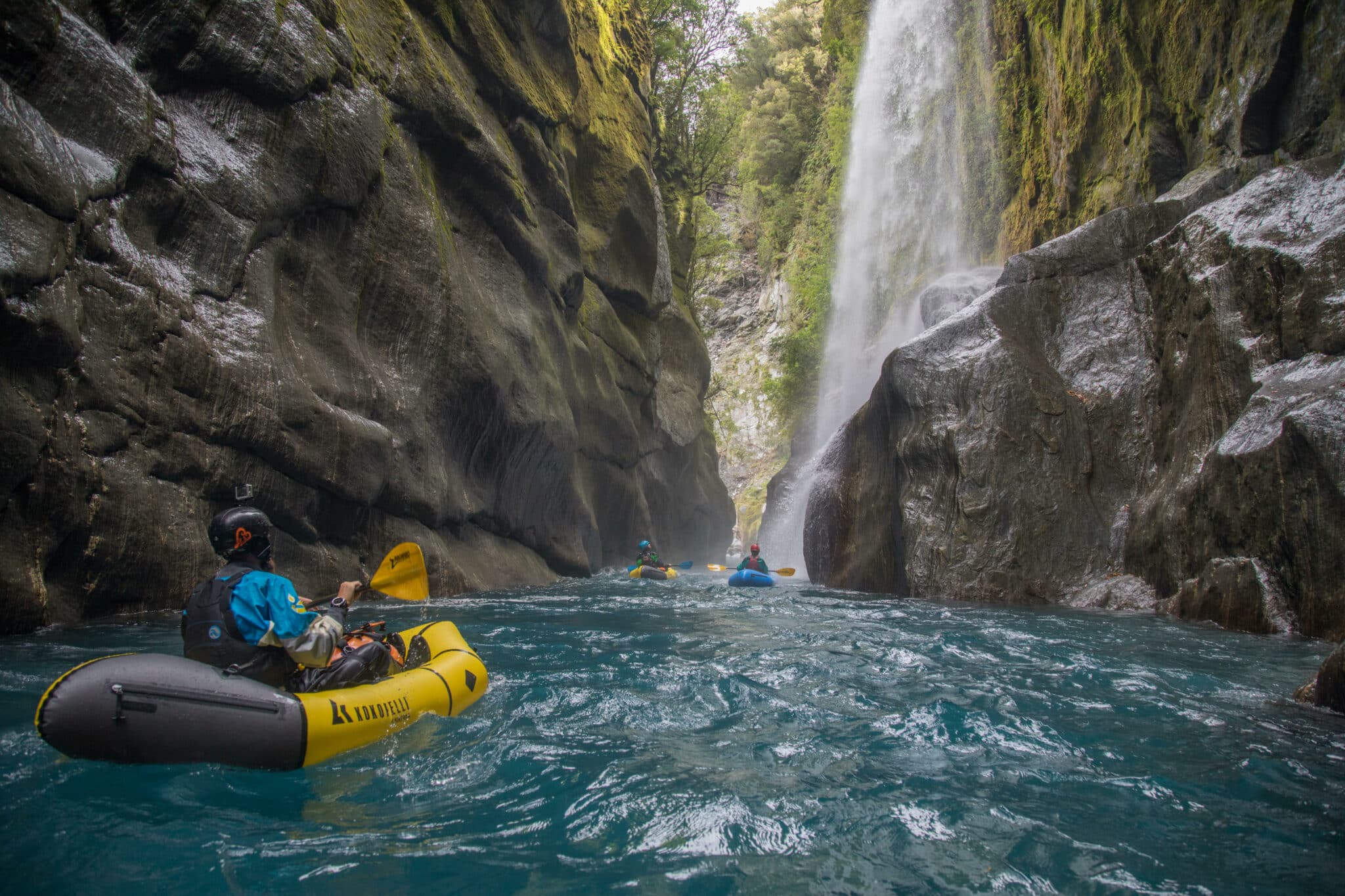
Kokopelli makes inflatable packrafts. (Courtesy Kokopelli)
In March 2023, Kelley Smith decided on the next step for his packraft company.
He needed to buy a cooler brand.
“We were at a point where we were facing a hard decision of: Do we downsize our staff and really get more efficient on overhead? Or do we acquire another company to continue growing and support a broader staff?” said Smith, the co-founder of Longmont-based Kokopelli.
Smith said he chose the latter, buying cooler-maker RovR last year. His rationale was that Kokopelli serves a small category of customers, making it much harder to grow. But businesses need momentum, he said, and there’s no better way of getting it than by building more brands.
After some consolidation and restructuring last fall, Kokopelli recently leased space in the York Street Yards property at 3863 N. Steele St. in Denver’s Clayton neighborhood. The 5,400-square-foot space will double as the business’ new headquarters and a retail store for both brands.
The firms will move into the new space at the start of 2025 after a $350,000 buildout, he said.
With the acquisition and restructuring behind him, Smith said the next step is to transform RovR’s image from western camping accessory to nationwide lifestyle product.

Kelley Smith
“How many people want a raft that you can hike into the woods with and blow it up, versus, how many people need a cooler?” Smith said. “Most people actually own three to four coolers … We wanted to go after a brand or a company in a much larger, total addressable market.”
The Kokopelli brand, meanwhile, is taking a longer-term approach. It did launch a new whitewater packraft, Rodeo, in March. The boat costs $2,000 and is entirely reinforced by Kevlar — a first for the company, Smith said. Beyond that, though, the business’ objective is to increase sales of existing products more so than to launch new ones.
“Twelve years of development and we’ve kind of thought about how everything works together,” Smith said. “We’re currently working on a new iteration of our thigh straps, and so it’s taking something we have and making it just that much better.”
Last year, RovR sold 8,000 to 10,000 coolers, while Kokopelli sold about 5,000 rafts. When Smith bought the cooler brand, there were four employees on staff, and his packraft company had eight.
“We had two full-time product developers, four operations people and then one salesperson,” he said of Kokopelli. “And we were wondering why sales were going down.”
Both businesses got a staffing update, Smith said. Three RovR employees on six-month contracts were not renewed, and replaced with three new salespeople. At Kokopelli, both product developers were cut while the four-person operations team was reduced to two. There are now 10 employees across both firms.

RovR coolers start at $349. (Courtesy RovR)
While the staffing changes were being made, Smith was also busy raising capital and signing the new lease.
The 40-year-old entrepreneur raised $4.5 million last year for his business, part of which was used to purchase RovR. In total, he’s raised nearly $7 million for the business since launching in 2012.
Kokopelli also had an expiring lease at its 600-square-foot office location in Longmont and about 3,000 warehouse square feet it no longer needed. The business spent six years there between two locations after moving from a coworking space in Denver.
Smith said he wanted a space he could show prospective customers what packrafting is and how to use the product.
“When you’re buying a $2,000 product, you kind of want to touch and feel it, you don’t want to just click a button on the internet and say. ‘I hope it’s the right size,’” he said.
The retail space will be 1,800 square feet, with the remaining 2,700 square feet for office use. Both RovR and Kokopelli will be located there.
As plans for the new office and retail spot are being ironed out, so too are the plans for Smith’s newly purchased cooler company.
“We want to build the RovR brand to be a national brand,” he said.
When he bought the business, he said it was priced competitively to higher-end firms, such s Yeti. Instead, Smith said he wants to decouple the “hook and bullet” branding from RovR and embrace a new target demographic. Instead of a cooler that is marketed for the backcountry, Smith is more focused on something designed for the beach.
The first order of business? Slashing prices.
“How do you compete against Igloos? Well-known throughout the world, and they got the low entry price point, and then the Yeti, who is the $500 cooler and 500-pound gorilla, right?” he said.
“We don’t want to compete against Yeti. We don’t want to compete against Igloo. We want to position ourselves right in-between, and instead of a $100 cooler or a $500 cooler, we want to be that middle-of-the-road brand that has high quality, but you still get value.”
RovR sells three coolers that start at $349.
To reach a larger market, Smith said he plans to get the RovR product into more retail stores as soon as possible. Currently, its coolers are sold in Scheels, REI, Public Lands, Camping World and ACE Hardware.
“When people are in there and they see the Igloo and the Rover and the Yeti, then we just have to trust that our product and our value proposition wins over the other two,” he said.
“To build a brand nationwide, you just have to be at stores nationwide.”
